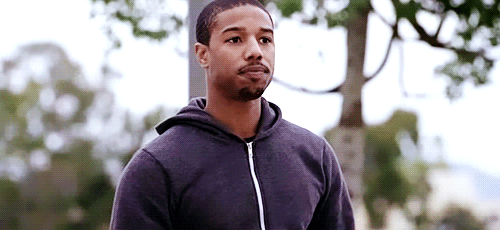Rui Domingo Rosas
 "Yes. I'm busy. Sorry."
"Yes. I'm busy. Sorry."Rui Domingo Rosas
N I C K N A M EN/a
B I R T H D A T E11/07/1990
A G E26
G E N D E RMale
S E X U A L I T YHeterosexual
R E L A T I O N S H I P S T A T U SSingle
O C C U P A T I O NFourth year PhD Candidate, NYU School of Economics. His thesis is entitled, “Three Essays on the Application of Supervised Learning Techniques to the Economics of High-skill Immigration”. He is currently at work on his Job Market paper, entitled: “Enough’s enough: Ethnic Capital Agglomerations and Diminishing Marginal Returns.”
H O M E T O W NRecife, Pernambuco, Brazil.
E T H N I C I T YPardo.
A P P E A R A N C EStriving for the conventional aesthetic of the Brazilian Bourgeoisie, the discipline of Rui’s appearance reflects that of his broader personality. Each morning his body - lean and rippling with a light muscle - is stuffed into a set of undersized gym clothes and taken for a jog around the block. The shower following that is cold; the intent, he claims, is to seal his pores and ensuring his skin’s longevity. With practiced precision, he will proceed to trim his facial hair into a neat anchor. His hair, otherwise a mass of tight, black curls descending to his upper spine when wet, is swept back and out of his face with a little product. Following this, he will moisturize; rubbing a thick, white salve into his caramel skin for the first of two times that day.
This ritual compliments a rich genetic predisposition. He stands at 6’2’’. His face is long, all angles and jawline and lacking the slightest blemish. He would be altogether quite handsome if not for the seriousness etched into his features: small lips are made smaller by their routine purse-ing, bushy eyebrows arch down above a set of piercing brown-black eyes. His face, lit up with thoughtfulness and intelligence during conversation, relaxes into an otherwise severe expression when left to its own devices.
His recent break-up has led to a depreciation in his appearance. His beard is somewhat more outgrown than it once was; the exactness of the cut has evaporated. He has allowed his hair to grow out some amount, and it takes on a more mane-like appearance. The changes aren’t drastic, and he retains much of his former style; though, to close friends, even the slightest deviation from the convention he’d held since starting college, is apparent. Even if difficult to place, he looks
different.
H A B I T S- When mulling over a problem, or caught in deep thought, his hand - and always his right one - will reach up to hold a bunch of his hair, clasping with a tightness that strains the roots.
- When nervous, he will roll the his thumbnail along the skin of his middle and pointing finger in an ostensible effort to pick it off. He has in past times, when contained with stress, peeled the skin right off the nubs of his fingers - entirely unconsciously.
- He catches himself looking into every reflective surface without fail.
H O B B I E S- Hanging out with friends
- Genealogy
- Programming
L I K E S- Puzzles and problem solving
- Current affairs - more-so arguing, if he is honest
- Korean art-house cinema. Cinema, in general
- Spanish football
- Classical music
D I S L I K E S- American Sports
- Feeling as if he’s wasted his time
- Cleaning data
- Rollercoasters
- Uncertainty
- Tickles
F E A R SP E R S O N A L I T YRui is introverted and prone to prolonged periods of social detachment. When enthused about a social situation he might be mistaken for an extrovert. He enjoys the company of others; that has never been a problem. But, afterwards, there is always a need to retreat, to recuperate from the experience; social situations are overwhelming. Following major social events, it is not unusual for him to go dark for a couple of days at a time; he will explain away such absences with the mere note that he was ‘thinking’, as if it was obvious what that entailed. In conversation, he bristles with an obvious intelligence and pace of thought - though, this sharpness has never extended to his sense of wit and he has been known for his spectacularly unfunny attempts at ripostes.
His background is that of fundamentalist-Protestantism. However, he has distanced himself from the rituals, if not quite the opinions, of his faith since coming to America. Disciplined and conservative in his approach to life, he has loosened up over the last number of years; the last to engage in acts of social excess, he remains open to a drink, or three, with friends. On occasion, he will lose himself among the exuberance of the crowd - though, he never ceases to feel shame the morning afterwards; it was never what he was in NY to do. Whilst posing a serious disposition, he retains a genuine good nature: always willing to lend a hand, or an ear, as required, it has allowed him to inject himself into groups of friends that are much more plainly fun.
However, his recent break-up has caused him to become more withdrawn from those around him. Whilst able to muster the enthusiasm to appear sociable as required, he finds himself making an increasing amount of excuses to avoid social situations and just sit at home. Being in fourth year, this has been easy to justify: he is, apparently, quite busy preparing for the job market.
H I S T O R Y“Life is neither a pleasure nor a sorrow; it is a serious affair with which we are charged, and towards which our duty is to acquit ourselves as well as possible.” It is undeniably odd to find such a message scribbled inside your thirteenth birthday card - undeniably more so to find it replace regular notions such as “happy birthday!” or “good luck, son!”. That, nevertheless, was what Rui found scribbled inside his thirteenth birthday card. It has been used as the guide to his upbringing: from an early age he was thought that a man must necessarily be able to justify oneself in front of god, his country, and himself - in that order. To exist otherwise, was to have failed in this life.
The prime provocateur of this attitude was Rui's father. A professor of mathematics at the municipal university, he had made contributions to abstract algebra significant enough to earn him tenure during the late 1980s, but thereafter generated little of academic merit. Rui’s mother was the maid his father fell in love with and married; though, their marriage overlapped suspiciously with her pregnancy. An only child, his upbringing was the more-or-less conventional one awarded to those of Brazilian society’s upper crust. He attended a private school, where the seriousness the father imparted on the child was little help in gaining friends, and generally grew up with plenty among the most dizzying extents of want.
Excelling academically - if with a sense of strictness and conceit that earned him concern from teachers - he graduated high school
summa cum laude. Accepted into NYU, it was an immediately disorientating experience: exposed to peers that rivaled, if not outright surpassed, his intellect, he was forced into an re-evaluation of the pretension that dominated his previous attitude towards education. After that, he matured rapidly; learning to value those around him, shelve derision, and open himself up to social opportunity. Whilst the discipline of attitude and action remained, he learned to relax it when it came to others. He graduated - majoring in Statistics, with a minor in History - a vastly different person: whilst ‘fun’ would be misleading, he had probably saved himself from the label: ‘not-fun’.
Since, he has pursued a PhD in Economics at NYU. In 2013, he began dating a woman from his cohort. However, at the beginning of the year he discovered that she had been cheating on him, and they broke if off. His friends are aware that his relationship had ended, though Rui has never divulged the cause. Whilst he has claimed to be over here, and does well mustering that piece of theater on the occasion she enters conversation, he isn’t; not in the slightest.







